- Home
-
Overview
- Study Guide
- The Single Most Important Idea
- Mission Statement
- War Is Not Inevitable keynote speech
- Capstone Essay: "To Abolish War"
- An Action Plan
- The Nine Cornerstones
- How Far We Have Already Come
- The Secret Ingredient
- The Vision Thing
- How Long It Will Take
- What You Can Do
- The AFWW Logo Explained
- Examples of War Expenses
- Biological Differences
- What Makes People Happy
- Map of Non-warring Cultures
- Cornerstones
- Videos
- Books
- Blog
- Project Enduring Peace
- About
- Related Projects
- Contact
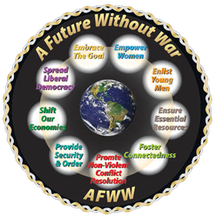 Darwin, Gandhi, Obama, and Berkely University's Greater Good Science Center All Agree - Humans are Basically Good By Judith Hand The fact of human essential goodness is our greatest hope—the foundation we rely on—for ultimately abolishing the despicable habit of war. A few years ago I wrote an essay for A Future Without War.org called “Essential Human Goodness.” The subtitle was “Our hope for abolishing war and ushering in the next great shift in human history-the Egalitarian Revolution.” In it I stressed three things:
In the intervening two years, support for this positive view of our nature has begun to pour in. The news is GOOD indeed. 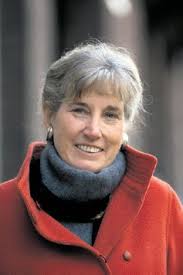 Sarah Blaffer Hrdy Sarah Blaffer Hrdy The retired Harvard-trained anthropologist Sarah Hrdy, in her book Mothers and Others: The Evolutionary Origins of Mutual Understanding, makes a totally compelling argument that human beings come by our altruism from our very very deep past. That in fact, pre-human ancestors, probably Homo erectus, were what biologists call “cooperative breeders,” and they were so cooperative because no one individual can raise our extremely helpless and long-dependent young. It takes not only mothers, but OTHERS as well to raise a human child to maturity. And all of that cooperation in raising our young selected for the traits we call empathy and altruism. (see a review on this AFWW website) Not long after, out came another book, by anthropologist, Frans de Waal, (director of the Living Links Center at the Yerkes National Primate Research Center in Atlanta). 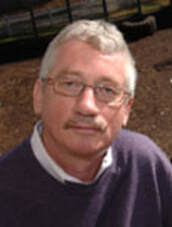 Frans de Waal Frans de Waal In The Age of Empathy. Nature’s Lessons for a Kinder Society, De Waal approaches this question of our nature from his studies of primates: monkeys and apes.His work was among the very first, if not the first, to point out that even primates such as chimpanzees can empathize with other chimpanzees, and that they in fact have social mechanisms designed to repair relationships between individuals that become damaged because of social conflicts. While some students of human behavior still argue for the provocative and violence-as-a-way-of-life “man-the-warrior” model of human ancestry, in an essay about the discovery of our very oldest ancestor known so far, Ardipithecus ramidus, I propose a “humans-as-cooperators” model. As noted by the specialists who did the arduous work of reconstructing what we know about Ardi, Ardipithecus ramidus has physical traits, especially their un-chimp-like teeth, that suggest they were socially very different from violence-prone chimpanzees. The males of Ardi’s kind were more likely to have been cooperators in the hunt for food to provision females and developing young and quite incapable of using their teeth to kill others in battles, as chimps do.  Douglas P. Fry Douglas P. Fry Another anthropologist who in the past few years is challenging the notion that we’re incurably violent and warlike and our ancestors always have been is Douglas Fry. His first book on this subject, The Human Potential for Peace: An Anthropological Challenge to Assumptions about War and Violence, strongly influenced my thinking, as did his second book, Beyond War: The Human Potential for Peace, a detailed review of which is provided on this website. Fry takes a critical look at artifacts that have been used to suggest that war goes into our deep past. He also presents careful analysis of nonviolent cultures studied by anthropologists, some of them entirely without war, to see how they resolve their conflicts. 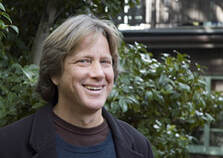 Dacher Keltner Dacher Keltner Now on 8 December 2009 on the PhysOrg.com website comes a posting describing the work of researchers at Berkeley’s Greater Good Science Center. Dacher Keltner, a UC Berkeley psychologist and author of Born to be Good: The Science of a Meaningful Life, and his fellow social scientists are building the case that humans are successful as a species precisely because of our nurturing, altruistic and compassionate traits. They call it “survival of the kindest.” 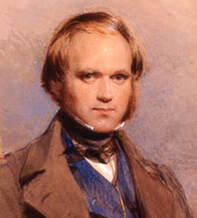 Charles Darwin Charles Darwin The door to a very different way of looking at what kind of creature we are is now open and new views are flooding in. Charles Darwin firmly believed that competition was a critical component of natural selection, but it was his followers who invented the phrase “Nature red in tooth and claw” and applied it to our species. Darwin himself was convinced that our defining traits were cooperation and sympathy. Which brings us to the current President of the United States, Barack Hussein Obama, as he accepted the Nobel Peace Prize. He, too, believes we are essentially good, each of us possessing an innate morality. I quote from his speech: “The nonviolence practiced by men like Gandhi and [Martin Luther] King may not have been practical or possible in every circumstance, but the love that they preached—their fundamental faith in human progress—that must always be the North Star that guides us on our journey. For if we lose that faith—if we dismiss it as silly or naïve, if we divorce it from the decisions that we make on issues of war and peace—then we lose what’s best about humanity. We lose our sense of possibility. We lose our moral compass.” - Barack Obama 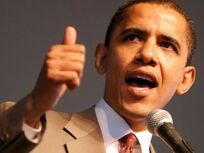 Barack Obama Barack Obama Will Obama live up to his promise? Will he fully earn that Nobel Peace Prize? The entire world waits expectantly to see, and many pray that history has delivered to us the right man for our troubled time. While the daily news seems dire, and many of us suffer from a sense of hopelessness and now and then feel that maybe we’re just too stupid and violent and selfish to survive….it seems that may not be at all true of us. We may simply have got stuck for a time, out of ignorance of how to prevent it, in the destructive habit of war. With better understanding of our nature and of the causes of war, (www.afww.org), perhaps we can break the habit. For humanity, greater and better days may actually BE our destiny.
0 Comments
Leave a Reply. |
Follow Me on Facebook
If you'd like to read my take on current affairs, or get a sense of what amuses me or I find educational or beautiful, do a search and follow me, Judith Hand, on Facebook. About the AuthorDr. Judith L. Hand. Dr. Hand earned her Ph.D. in biology from UCLA. Her studies included animal behavior and primatology. After completing a Smithsonian Post-doctoral Fellowship at the National Zoo in Washington, D.C., she returned to UCLA as a research associate and lecturer. Her undergraduate major was in cultural anthropology. She worked as a technician in neurophysiology laboratories at UCLA and the Max Planck Institute, in Munich, Germany. As a student of animal communication, she is the author of several books and scientific papers on the subject of social conflict resolution.
Categories
All
Archives
November 2019
|
A Future Without War
Believe in it. Envision it. Work for it.
And we will achieve it.
Believe in it. Envision it. Work for it.
And we will achieve it.
AFWW is continually developed and maintained by Writer and Evolutionary Biologist Dr. Judith Hand.
Earth image courtesy of the Image Science & Analysis Laboratory, NASA Johnson Space Center. Photo Number AS17-148-22727 eol.jsc.nasa.gov
©2005-2019 A Future Without War. All rights reserved. Login
Earth image courtesy of the Image Science & Analysis Laboratory, NASA Johnson Space Center. Photo Number AS17-148-22727 eol.jsc.nasa.gov
©2005-2019 A Future Without War. All rights reserved. Login
- Home
-
Overview
- Study Guide
- The Single Most Important Idea
- Mission Statement
- War Is Not Inevitable keynote speech
- Capstone Essay: "To Abolish War"
- An Action Plan
- The Nine Cornerstones
- How Far We Have Already Come
- The Secret Ingredient
- The Vision Thing
- How Long It Will Take
- What You Can Do
- The AFWW Logo Explained
- Examples of War Expenses
- Biological Differences
- What Makes People Happy
- Map of Non-warring Cultures
- Cornerstones
- Videos
- Books
- Blog
- Project Enduring Peace
- About
- Related Projects
- Contact

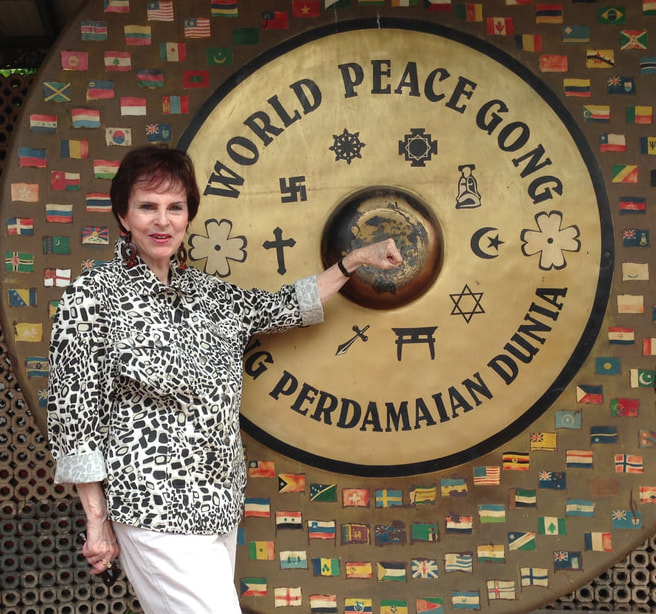
 RSS Feed
RSS Feed